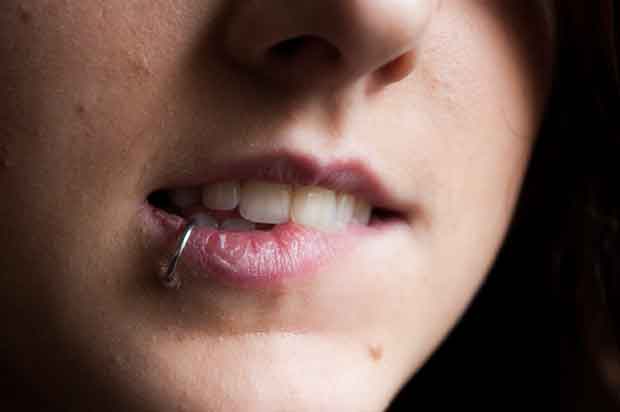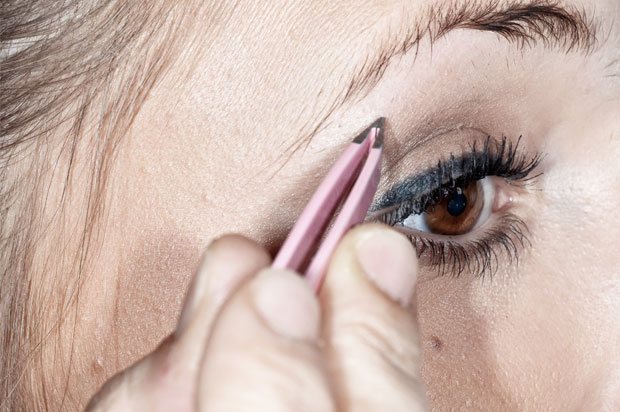Cold sores

What is a cold sore?
Coleslaw? Did someone say coleslaw? No? Cold sores are caused by the herpes virus and can lead to itchy, unsightly red patches around your mouth. Here’s the lowdown on what cold sores are, how you get them and, perhaps most importantly, how long after a cold sore you give oral sex to your partner.
What is a cold sore?
Cold sores are small ulcers that erupt around the lips and nostrils. The infections are caused by a virus known as Herpes simplex virus type I.
Just so you can wow people at the dinner table, there are actually eight types of herpes viruses for which humans are the primary host: herpes simplex virus 1, herpes simplex virus 2, varicella-zoster virus, Epstein-Barr virus, cytomegalovirus, Human herpesvirus-6, Human herpesvirus-7, and Kaposi’s sarcoma herpes virus.
What happens when you get a cold sore?
Early signs of an attack include a tingling sensation in the area where the sore will develop. The skin then becomes inflamed, blisters begin to form and finally burst. Often this can lead to painful ulcers, or scabs.
How do you get cold sores?
Quite simply, they are very contagious. If someone with a cold sore kisses you, you’re likely to catch the herpes virus that causes them. What’s unfair about cold sores is they affect people differently. Most people are exposed to the infection – up to 80% of the UK – and the virus lies dormant forever. Some people may get a one-off cold sore attack and then never get one again. And, for others, cold sores are a fact of life and they get about four to five episodes each year.
Things that can trigger cold sores include: having a weakened immune system due to illness, stress, strong sunlight, certain foods, and being on your period, if you have them.
How long do cold sores last?
An attack can last for eight to 12 days, with more tingling every time a new crop arrives. Using a lip balm to stop a sore from drying out and peeling can speed up the complete healing process. Consider your lip balm thoroughly contaminated once you’ve used it, however, and remember to throw it away after the sore is gone.
How long after a cold sore can you give oral?
You should avoid having oral sex until after the cold sores are completely healed, which can take anywhere from 2–6 weeks. Otherwise you’ll almost certainly pass it on.
Technically speaking, you could still pass herpes to someone even if you don’t have an active sore, but when you bear in mind that more than 3.7 billion people under the age of 50 – 67% of the global population – are infected with the herpes simplex virus type 1 (HSV-1), and some people are infected but might never have any symptoms, not a lot of oral sex would be happening if every infected person abstained (and who wants to live in a world like that?).
We’ve got more information about the chances of catching herpes from oral sex here.
Hang on, are cold sores the same thing as genital herpes?
No. If you suffer from cold sores this doesn’t mean you’ll get genital herpes. They are similar strains of the same virus that reside in different parts of the body.
HOWEVER – the virus can morph through skin-to-skin contact. So if you’ve got a cold sore, and go down on someone or give them a blowjob – this can give them genital herpes. So, whatever you do, take oral sex off the menu the moment you feel a tingling around your mouth, or use a dental dam.
Learn more about genital herpes here.
How do I stop myself from spreading cold sores to others?
- Don’t kiss anyone, anywhere, until the attack is over, as this is a common way the virus spreads.
- Using shared eating utensils, including cups and cutlery, should be avoided until the cold sore has gone down.
- As we said above, avoid all forms of oral sex or use a dental dam, otherwise your oral herpes will become your sexual partner’s genital herpes.
- Wash your hands thoroughly after touching a cold sore.
- Don’t rub your eyes as this can transfer the virus into your eyeball.
How to treat cold sores
Unfortunately, once you have the virus, you’ll always have it. There’s no ‘cure’ for cold sores, but you can treat the sores themselves when you have a flare-up. That said, they go away by themselves within seven to ten days. Types of antiviral medication such as creams or liquids are pretty effective. See your GP or pharmacist for further advice.
If antiviral treatment is applied as soon as tingling is felt, it may completely stop the sore appearing, or reduce the severity of the attack.
If attacks are severe and return frequently, antivirals can be given in pill form.
Sufferers may also find that applying sunscreen to prone areas may cut down the chances of an outbreak.
How do I cover a cold sore?
If you want to go out but don’t fancy showcasing your brand new sore, you can cover them with makeup.
Apply antiviral cream or moisturiser so that the sore isn’t dried out – this stops makeup sticking to it. You can also buy special cold sore cover-up patches. Then carefully dab a liquid foundation over the sore, followed by concealer if you need more coverage.
Learn more about body problems with The Mix here.
Next Steps
- Chat about this subject on our Discussion Boards.
By The Mix Staff
Updated on 09-Nov-2022
No featured article














